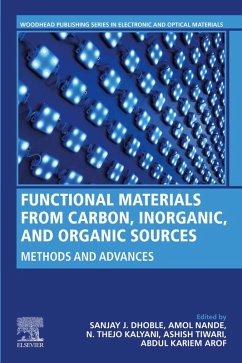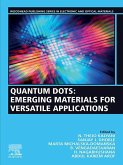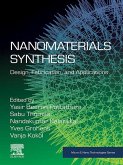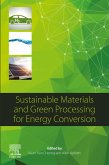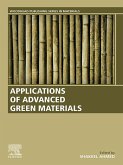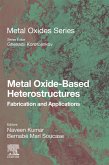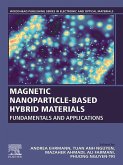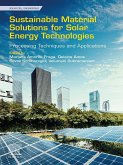Functional Materials from Carbon, Inorganic and Organic Sources: Methods and Advances describes the basic principles, mechanisms and theoretical background of functional materials. Sections cover Carbon-based functional materials, Inorganic functional materials for renewable and sustainable energy applications, and Organic and biological based functional materials. Applications such as energy storage and conversion, electronic and photonics devices, and in medicine are also explored. Sections dive into photovoltaic devices, light emitting devices, energy storage materials and quantum dot devices, solar cell fundamentals and devices, perovskite materials and ceramic thin films. Final sections emphasize green approaches to synthesis in semiconductor nanoparticles, quinolone complexes, biomaterials and biopolymers. - Introduces the reader to a wide range of the most relevant functional materials, including carbon-based materials, inorganic materials for energy applications, and organic and biological based materials - Reviews the synthesis and characterization methods used to create, optimize and analyze functional materials properties - Discusses the use of functional materials to enable emerging technologies, along with remaining barriers to commercial adoption and opportunities
Dieser Download kann aus rechtlichen Gründen nur mit Rechnungsadresse in A, B, BG, CY, CZ, D, DK, EW, E, FIN, F, GR, HR, H, IRL, I, LT, L, LR, M, NL, PL, P, R, S, SLO, SK ausgeliefert werden.

